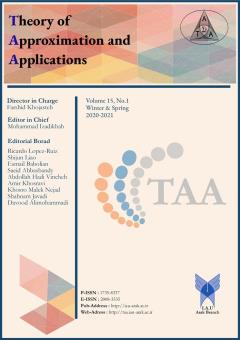The Relationship Between Company Strategies and Effective Factors According to The Degree of Cost Stickiness
محورهای موضوعی : Operations Research
Zahra Hashemipour Nasri
1
,
Mojgan Safa
2
![]() ,
Fardin Mansouri
3
,
Reza Gholami Jamkarani
4
,
Fardin Mansouri
3
,
Reza Gholami Jamkarani
4
![]()
1 - Department of Accounting, Qom Branch, Islamic Azad University, Qom, Iran
2 - Department of Accounting, Qom Branch, Islamic Azad University, Qom, Iran
3 - Faculty of Economy,University of Sistan and Baluchestan, Zahedan,Iran
4 - Department of Accounting, Qom Branch, Islamic Azad University, Qom, Iran
کلید واژه: investment strategy, heavy asset strategy, affiliation with business groups, company business strategies, light asset strategy,
چکیده مقاله :
Cost stickiness is an essential subject in accounting and economics studies affected by several factors. Profit management improves how profits are presented as desired, given the importance of the company's profit for the users of financial statements. This study aimed to evaluate the strategies of heavy and light assets, company business, affiliation with business groups, investment, cost-oriented, abundance of debt, revaluation, labor adjustment, tax avoidance, and family ownership on the stickiness of the costs of companies accepted in the capital market of Iran. First, the variables and factors influencing the level of the stickiness of companies' costs were identified using expert interviews and Lawshe's index, and then the identified variables were measured. Finally, 102 companies from Iran's capital market were selected to perform statistical tests. The hypotheses testing during the six years period from 2015 to 2020 indicated that the studied strategies affected the stickiness of companies' costs.
Cost stickiness is an essential subject in accounting and economics studies affected by several factors. Profit management improves how profits are presented as desired, given the importance of the company's profit for the users of financial statements. This study aimed to evaluate the strategies of heavy and light assets, company business, affiliation with business groups, investment, cost-oriented, abundance of debt, revaluation, labor adjustment, tax avoidance, and family ownership on the stickiness of the costs of companies accepted in the capital market of Iran. First, the variables and factors influencing the level of the stickiness of companies' costs were identified using expert interviews and Lawshe's index, and then the identified variables were measured. Finally, 102 companies from Iran's capital market were selected to perform statistical tests. The hypotheses testing during the six years period from 2015 to 2020 indicated that the studied strategies affected the stickiness of companies' costs.


